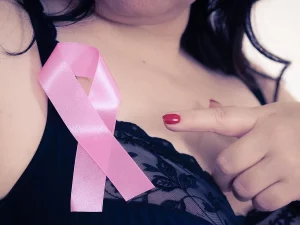
Before you think about giving your two cents, maybe step back and look at the bigger picture.
IN THE WORLD OF INTERNET SENSATIONALISM, website xoJane has carved out a niche with its gross-out stories and shocking personal essays from young women. It’s a paying market that has created the illusion that anyone with a controversial or unusual story has something to say — and an important something, at that. But not everyone’s perspective matters.
That’s a lesson xoJane learned the hard way earlier this month, when it published an essay, titled “My Former Friend’s Death Was a Blessing,” from freelance writer Amanda Lauren. The author documents the decline and eventual suicide of her estranged friend, Leah, who was diagnosed with mental illness. Though the two women had not spoken in five years, Lauren claims she bore witness to Leah’s descent through social media.
Although there’s nothing wrong with someone remarking on how another person’s death has affected them, it quickly became apparent that Lauren was incapable of empathizing with Leah’s plight, and remained oblivious to how she may have contributed to it. Jezebel grabbed this quote from Lauren’s essay before xoJane struck it:
My voyeurism into her life lasted for another week or two until she started talking about me. She referred to me as her frenemy and revealed some personal information I had once shared with her. I became concerned about people knowing this, but then I realized no one was reading it. I wondered why she was even talking about me, but then I realized when I unblocked her, I probably ended up on her Suggested Friends list. This entire ordeal was upsetting and I sent a message to Facebook asking them to remove the post. Then I blocked her again. This was putting unnecessary negative energy into my life.
A group of xoJane contributors and concerned others penned an open letter to the website about the article, saying that Lauren’s romanticization of her friend’s suicide as a blissful experience “reinforces the stigma around mental illness that keeps many people from seeking the help they need to live happy, fulfilling lives.”
When the backlash rolled in, xoJane quickly backtracked, first by deleting Lauren’s by-line, then by replacing the article with an apology from editor Jane Pratt. A similar incident happened in January 2014, when the website published a white woman’s personal essay about the lack of black women in her yoga classes. That “It Happened to Me” piece was full of the self-absorbed writer’s fat-shaming and diet racism.
What’s more interesting than readers’ fallout with xoJane is the impact that Lauren’s essay has had on conversations about ableism and which voices should be given a platform.
Read the comments on any social-justice-oriented article, and you’ll see privileged folks going off on #NotAllMen-esque rants and telling marginalized individuals the ways in which their communities could change to make things easier on themselves. These statements imagine people of color, women, the poor, and people with disabilities as being in need of privileged groups’ input in order to function.
These comments are the epitome of ignorance, and, unfortunately, just about anyone can be guilty of making them, simply because most people will have some kind of privilege compared to another group. That doesn’t excuse this behavior, however, and asking yourself a few simple questions before speaking out can help you avoid forcing your perspective on those who don’t need to hear it.
1. Do I have privilege?
This is the easiest and most obvious question you can ask to prevent yourself from pulling an Amanda Lauren.
It’s important to remember that you can be marginalized in one way and still have privilege in another. So, for example, if you’re poor, but male, you still have privileges that women of all classes do not. White women have privileges that black men do not. And so on and so forth.
2. Does my perspective contribute meaningfully to this conversation?
We all want to be a part of the conversation, but privileged folks will learn far more by listening than by taking up word space in marginalized communities’ discussions.
All of us have read books or seen movies in which whites recount the horrors of racism, men — and only men — discuss their marriages to women, and cis-het people leave behind allyship to control an LGBTQIA narrative. Now, say it with me: we don’t need more stories like these.
3. Who will be helped or uplifted by what I have to say?
First off, a warning: “teaching” marginalized folks what they “should” do in order to avoid discrimination and violence is not helping, but hurting.
If you’re only speaking up because you want to say something, or because contributing will make you, personally, feel validated, stop. Your perspective doesn’t matter, and everyone will be better off if you stay quiet.
This doesn’t mean you have to exit the conversation completely, however. Stay and listen. You’ll learn something.
















